2018 China Tax Law Forum and the 7th China Tax Lawyers and Tax Agents Forum

On December 16, 2018, "2018 China Tax Law Forum and the Seventh China Tax Lawyers and Tax Accountants Forum" was grandly held at Beijing Jingyi Hotel, which was co-sponsored by All-China Lawyers' Association and China Association of Registered Taxation Technicians, and co-organized by the Property Tax Law Committee of All-China Lawyers' Association, the Property Tax Law Research Center of China University of Political Science and Law, Beijing Hwuason Law Firm, Huatax Taxation Firm, and Crowe Horwath (Beijing) Taxation Firm Co. Ltd. and Crowe Horwath (Beijing) Taxation Firm Co., Ltd. jointly organized the "2018 China Tax Law Forum and the Seventh China Tax Lawyers and Tax Accountants Forum" was grandly held in Beijing Jingyi Hotel. With the theme of "Tax Reform and Innovative Development of Tax-Related Services in the New Era", the forum received more than 900 registrations from representatives of law firms, tax firms, accounting firms, tax bureaus, enterprises, colleges and universities, etc. Due to the limitation of venues, more than 600 participants attended the on-site seminars of the forum, which was finally confirmed after careful examination by the organizer. Due to the space limitation and after careful examination by the host and organizer, more than 600 people finally participated in the on-site seminar of the forum. In addition, more than 17,000 people from all walks of life watched the live video broadcast online.
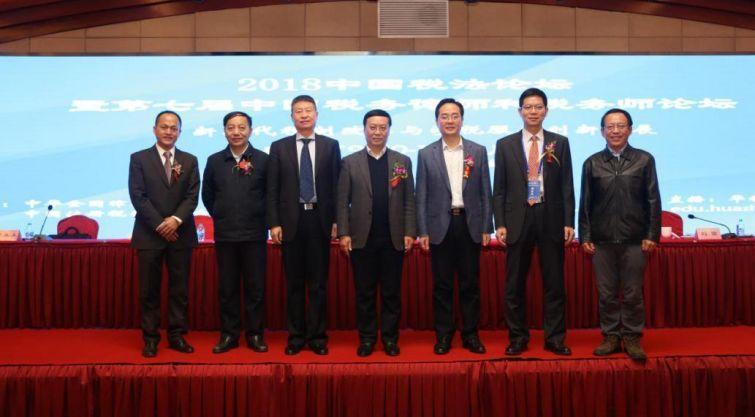
The picture shows a group photo of the guests at the opening ceremony of the forum
At 9:00 a.m. on December 16, the opening ceremony of the forum was held. At the opening ceremony, Mr. Gao Peiyong, Vice President of the Chinese Academy of Social Sciences and member of the Academic Council of the Chinese Academy of Social Sciences, delivered a keynote speech focusing on the "situation and tasks of the current fiscal and tax reform". Mr. Han Xiutao, Secretary General of All China Lawyers Association, Mr. Li Linjun, Vice President and Secretary General of China Association of Registered Tax Accountants, Mr. Liu Jianwen, Professor of Peking University and President of China Law Society's Fiscal Law Research Association, and Mr. Shi Zhengwen, Director of the Fiscal Law Research Center of China University of Political Science and Law attended the opening ceremony and delivered speeches one after another. Mr. Liu Tianyong, Deputy Director and Secretary General of Finance and Taxation Law Committee of the National Lawyers Association and Director of Hwuason Law Firm, presided over the opening ceremony.
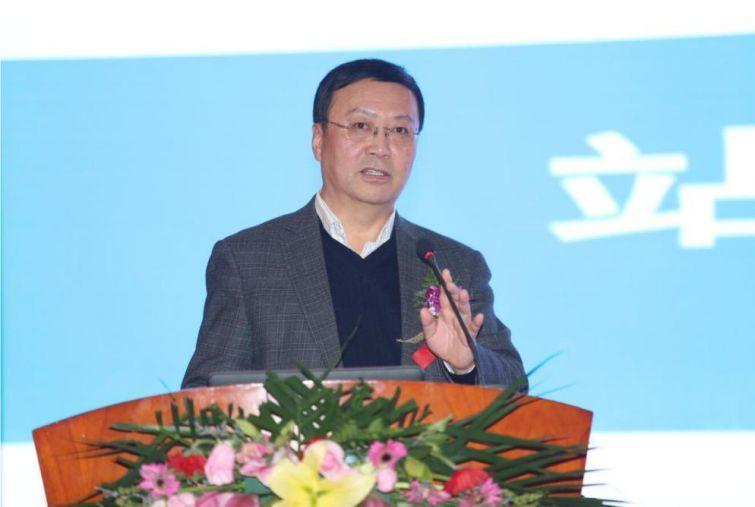
Figure is the speech of Vice President Gao Peiyong
In his keynote speech, Vice President Gao Peiyong pointed out that tax reform should be discussed from the perspective of modern tax civilization and beyond the limitations of the old economic vision and concept. The construction of modern tax civilization should be in line with the five aspects of new historical orientation, new main contradiction of society, new reform goal, new tax function and new stage of economic development. The new era is an important keyword that cannot be ignored in our discussion of tax construction and tax service. Only by connecting the new era with tax reform and tax-related service can we reach a consensus on the reform of the tax system and the innovative development of tax-related service in the new era.
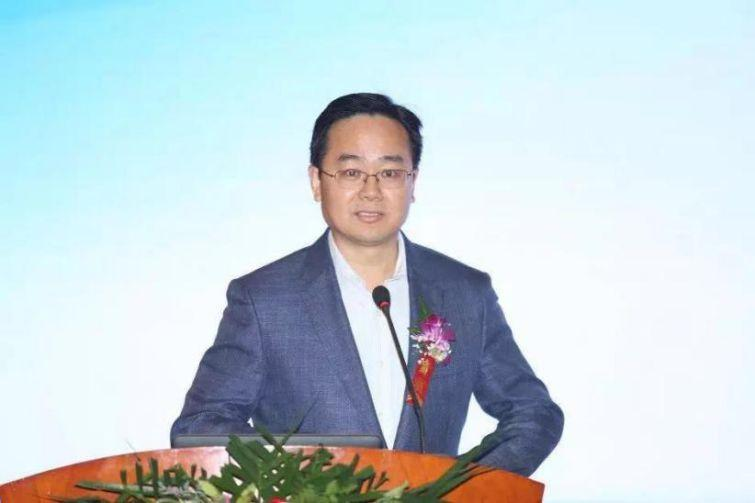
The picture shows the speech of Secretary General Han Xiutao
Han Xiutao emphasized in his speech that, in the context of the comprehensive rule of law, the level of the rule of law in the country has been comprehensively upgraded, and the lawyers' profession has entered the fast lane of development. This year is the 40th anniversary of reform and opening up, 40 years China's lawyers from scratch, from small to large, become China's reform and opening up of the main participants, active practitioners, but also the reform and opening up of the strong defender, the biggest beneficiaries. The majority of lawyers should respond to the needs of the times, the needs of the country, and study the legal business, upholding fairness and justice, to provide better professional legal services for all sectors of society.

Photo shows the speech of Secretary General Li Linjun
In his speech, Secretary-General Li Linjun put forward three annual keywords in the field of taxation in 2018: reduction, law and specialization. "Reduction" refers to tax cuts, and we must continue to reduce the tax burden on enterprises and increase tax cuts. "Law" refers to the tax law, and the establishment of tax types, the determination of tax rates and the basic system of tax collection and management must be established through the legislation of the National People's Congress (NPC); "Specialized" refers to professional services. The launch of a large number of national tax reduction policies and the landing of tax legislation require professional organizations and professionals to provide professional services, and compared with developed countries, China's tax-related legal services market still has a vast space for development.
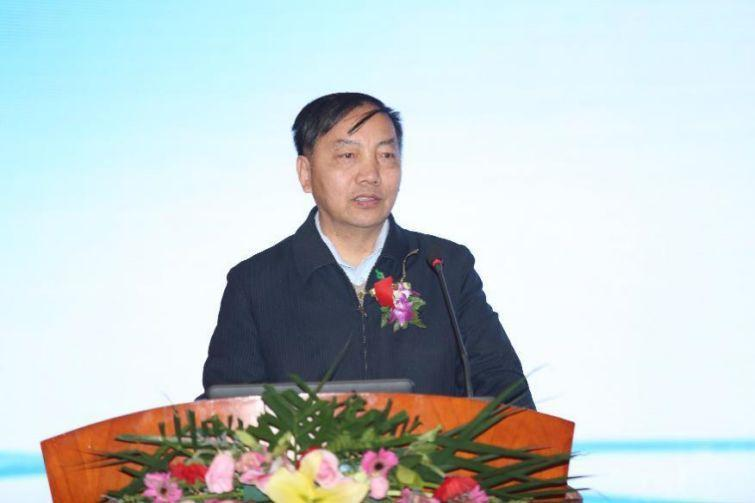
Picture shows President Liu Jianwen's speech
President Liu Jianwen said in his speech that improving the quality of tax reform is an important task of tax reform in the new era, and that tax reform in the new era needs to follow the goals of modernization, rule of law and internationalization of tax governance, leading reform through the rule of law, guiding legislation through reform, improving democratic and scientific legislation, and implementing the law of taxation. Tax legislation needs active advice and suggestions from the legal professional community. Both tax reform and tax legislation need to strengthen the theoretical construction and practical development of taxation. President Liu emphasized that to promote the development of China's tax rule of law, the power of tax justice cannot be ignored, and tax-related services will be greatly reduced without the protection of tax justice.
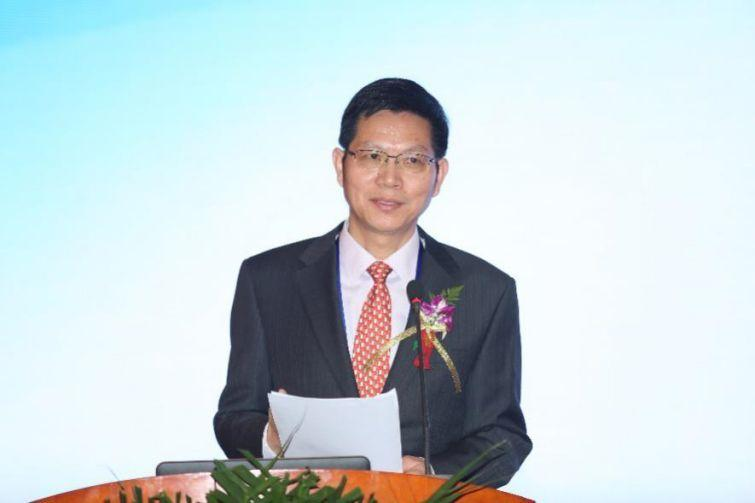
The picture shows the speech of Prof. Shi Zhengwen
Prof. Shi Zhengwen pointed out in his speech that China has entered a new era of development of modern tax-related service, which is a tax law service centered on promoting tax law compliance and safeguarding taxpayers' rights and interests. The main contradiction of tax-related services in the new era is the contradiction between the growing high-quality tax-related requirements of taxpayers and our insufficient and unbalanced and insufficient capacity and unbalanced development in different places. To solve the main contradiction of modern tax-related services in the new era, we are required to set up a new concept and cultivate a new capacity, and the unprecedented development of the China Tax Law Forum lies in the fact that it can analyze the new situation and tasks in a forward-looking manner and put forward new initiatives for the development of the industry. The unprecedented development of China Tax Law Forum also lies in its ability to analyze the new situation and new tasks in a forward-looking manner and put forward new initiatives for the development of the industry.
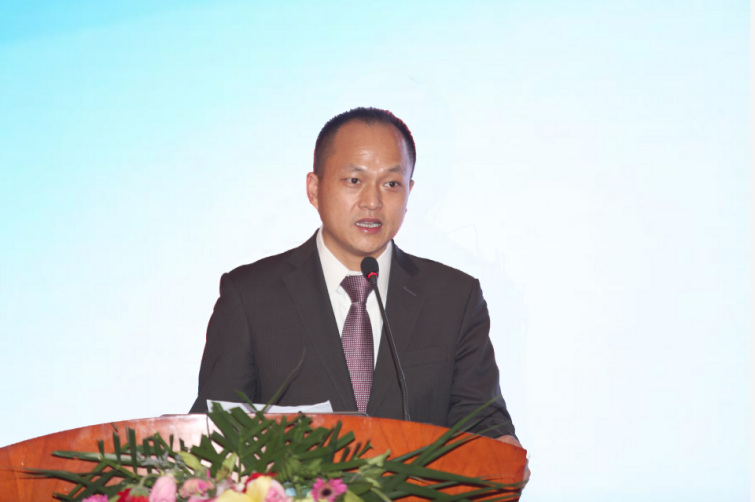
Pictured is Director Liu Tianyong presiding over the opening ceremony
This year's forum includes five topics, namely: (1) Tax Reform and Tax Legislation in the New Era; (2) Reform of Tax Administration System and Innovation of Tax-Related Services; (3) In-depth Analysis of Recent Tax Dispute Cases and Business Enhancement; (4) Innovation of Tax-Related Services in the Reform of Tax Reduction and Fee Reduction; and (5) Innovation of International Taxation Services in the Strategy of "One Belt, One Road", Digital Economy and International Taxation Services. (v) "Belt and Road" strategy, digital economy and international tax service innovation.
The first part, titled "Tax Reform and Tax Legislation in the New Era", was hosted by Mr. Zhu Daqi, Vice President of the Research Society of Finance and Taxation Law of the Law Society of China, Professor of the School of Law of Renmin University of China, and Doctoral Director. Hu Yijian, Professor and Doctor of Shanghai University of Finance and Economics, Feng Qiaobin, Professor and Doctor of the Department of Economics of the National School of Administration, and Shi Zhengwen, Vice President of the Research Society of Finance and Taxation Law of the Law Society of China and Director of the Research Center of Finance and Taxation Law of the China University of Political Science and Law and Doctor of Philosophy, delivered their keynote speeches successively.
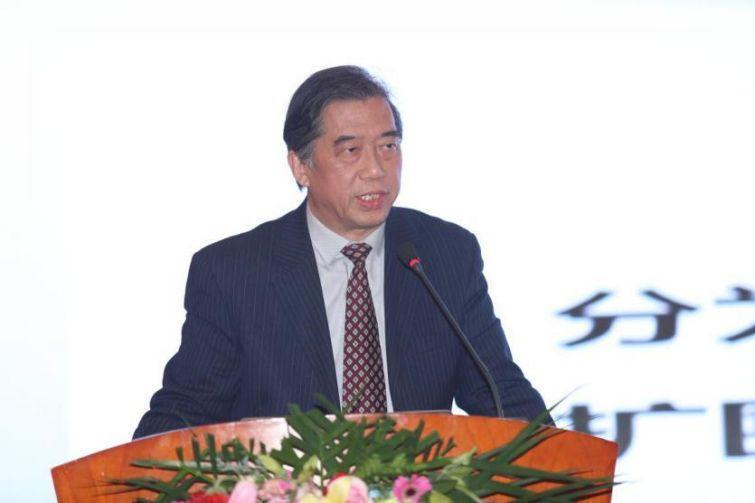
Prof. Hu Yijian's speech
Professor Hu Yijian's speech was entitled "Key Issues of VAT Reform and Legislation", in which he pointed out that throughout the process of China's VAT reform and the future development trend, VAT reform can be divided into the three major tasks of expanding the scope of VAT, reforming the system, and enacting legislation. important achievements in economic transformation and development. However, there is still a long way to go in terms of reforming the tax rate structure, standardizing the tax system and optimizing tax administration. On this basis, he pointed out that after the full implementation of the reform and expansion, the VAT legislation is the top priority in building the tax law system system, so as to comprehensively improve China's tax governance level and governance capacity and enhance the international competitiveness of taxation through further restructuring and legislation.
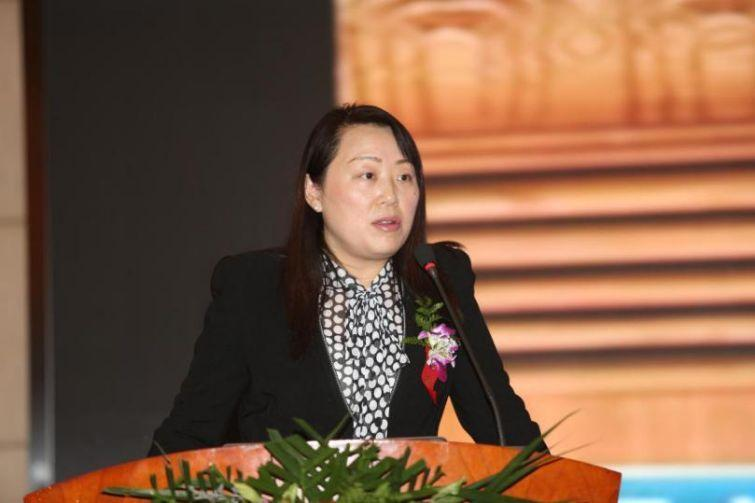
Prof. Feng Shoubin's speech
Prof. Feng Saobin's speech was titled "Overall Design and Key Issues of Tax and Fee Reduction Reform", and she believed that our country's tax and fee reduction has jumped from version 1.0 to version 2.0, and the core change is that the total tax and fee reduction should be transformed from a quantitative to a qualitative one. She pointed out that tax types should be consolidated and the implementation of the principles of universality, neutrality and fairness of the tax system should be significantly enhanced through permanent or semi-permanent stabilization of tax law provisions. In the future, tax and fee reduction should be realized through the rule of law and institutionalization. In the process of promoting tax legislation, the legislature should control the total level of social burden and extend the principle of tax legislation to income legislation, and it should also focus on the relationship between tax types.
Professor Shi Zhengwen's speech was titled "The Legislative Spirit and Future Development of the New Individual Income Tax Law", and he pointed out that the legislative spirit of the new individual tax law reform has two points, firstly, the individual tax system realizes the transformation from traditional to modern, and secondly, the function of the individual tax reform is not only in the redistribution of the social income, but also about the realization of the social fairness and justice, improvement of people's livelihood as a whole. The institutional innovations of the new tax law are reflected in seven aspects, including the combination of comprehensive and categorical taxation models, the establishment of internationally accepted standards for determining the identity of taxpayers, the optimization of the tax rate structure, the expense deduction system that combines basic and categorical deductions, the comprehensive anti-avoidance system, the modern tax administration system, and the system of providing third-party tax-related information.
After the keynote speeches, Mr. Liu Zuo, Vice Chairman of the Research Society of Finance and Taxation Law of the China Law Society and former Director of the Taxation Research Institute of the State Administration of Taxation, and Dr. Mei Yuehua, Director of Taxation Department of Beijing Municipal Finance Bureau and Doctor of Economics, made comments.
The second part, entitled "Reform of Tax Administration System and Innovation of Tax-related Services", was chaired by Mr. Tu Longli, Convener of the Fourth Research Department of the China Taxation Society and Professor of Liaoning Taxation Higher Specialized School. Mr. Li Linjun, Vice President and Secretary General of China Association of Registered Taxation Technicians, Mr. Li Wanfu, Director of Taxation Research Institute of the State Administration of Taxation, Mr. Ma Haitao, Deputy Director of Cargo and Labor Department of Beijing Taxation Bureau of the State Administration of Taxation, and Mr. Wang Mingshi, Researcher of Scientific Research Institute of Cadre College of the State Administration of Taxation, delivered their respective keynote speeches.
Mr. Li Linjun, Vice President of the State Administration of Taxation (SAT), gave a speech entitled "New Development of Tax-related Services in the Reform of 'Putting in Place and Serving' and the Merger of State and Local Taxation", in which he summarized the reform of putting in place and servicing in the field of tax services with "four threes": three puts, three services, three services, and three services. He summarized the reform of tax services with "four threes": three releases, three controls, three reductions, and three noes. The "three releases" refer to the release of approval, power and market. On the basis of the release of "three management" that is, credit management, risk management, data management. In the provision of services to achieve "three reductions": reduce the time, reduce the number of times, reduce the procedure. He insisted on three no's: no inspection without risk, no entry without approval, and no non-voucher without violation of law. He proposed that under the premise of the reform of tax administration and management, tax-related professional service organizations should realize the "four helps", which help enterprises to enjoy tax preferences, help enterprises to prevent tax risks, help enterprises to innovate tax management, and help enterprises to develop with high quality.
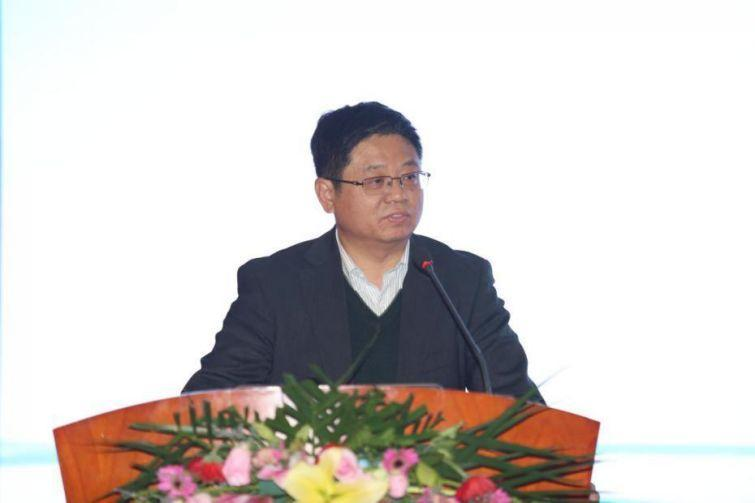
Picture shows the speech of Mr. Li Wanfu
Mr. Li Wanfu's speech was titled "Cracking the Difficult Problems of Revision of the Tax Administration Law", in which he believed that the future reform of the tax system calls for the expeditious promulgation of the Tax Administration Law, so as to better escort the reform of the tax system. He summarized the difficult problems faced by the reform of tax administration law into the following three points: firstly, the problem of third-party information provision; secondly, the problem of constructing the system of natural person's collection and administration, especially pointing out that after the revision of the personal tax law, whether the original collection and administration system, which was aimed at legal persons, is suitable for natural persons; thirdly, the revision of the tax administration law should be in conformity with the development of the economy's datatization. On this basis, he proposed that the revision of the tax administration should focus on four points: firstly, maintaining neutrality, secondly, enhancing expectation, thirdly, reflecting fairness, and fourthly, the tax administration should realize feasibility and convenience.
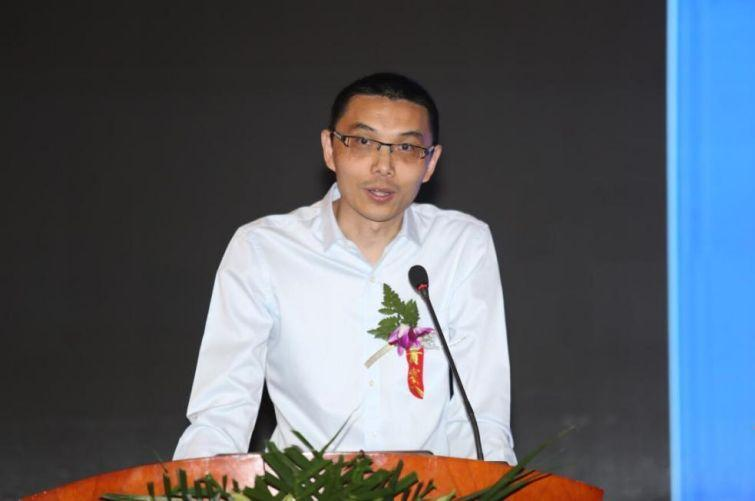
Figure is the speech of Deputy Director Ma Haitao
Deputy Director Ma Haitao's speech was titled "Interpretation of Current Invoice Management Policies and Analysis of Problems", in which he proposed that in order to promote the reform of "release management and service" in VAT invoice management, tax authorities have introduced a classification and grading management system for VAT invoices. Taxpayers are categorized into ordinary taxpayers, key management taxpayers and specific taxpayers, and the risks of corresponding invoices are categorized into four levels of risks: low, medium, high and abnormal taxpayers. On this basis, the taxpayers' demands for VAT invoices are responded to respectively, and the efforts are made to both liberalize and manage the management of invoices.
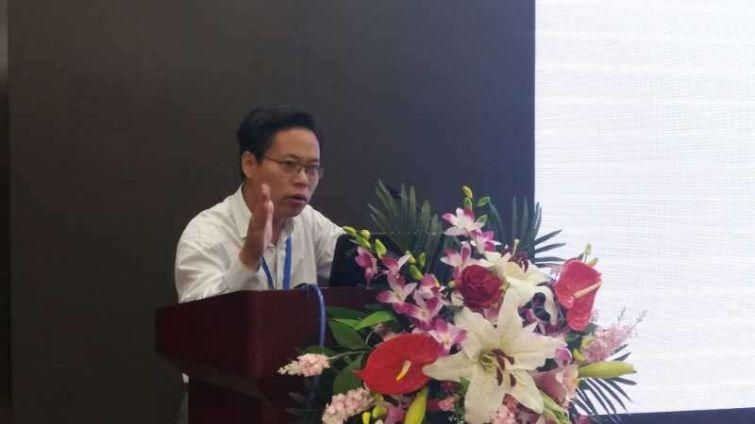
The picture shows the speech of researcher Wang Mingshi
Researcher Wang Mingshi's speech was titled "Analysis of Tax Management of Social Insurance Premiums and Non-Tax Revenues", in which he summarized the modern tax collection and management procedures as "8, 5, 1" and explained their logical structure in terms of the identification of taxpayers, management of vouchers, provision and sharing of tax-related information, and declaration of tax amount, He explains the inherent logical structure of the tax administration procedures from taxpayer identification, voucher management, provision and sharing of tax-related information, tax declaration, tax amount confirmation, and points out that tax amount confirmation is the soul and key of modern tax administration. On this basis, he proposed that social security fees and non-tax revenues should be collected, managed and investigated in the same way as taxes, and that in the long run, the concept of modern tax collection and management can be projected onto the construction of social security fees and non-tax revenues systems, so as to gradually realize the fusion with the current collection and management procedures.
After the keynote speeches, Zhou Xuzhong, Professor of Law School of Capital University of Economics and Business and Secretary General of China Law Society's Finance and Taxation Law Research Association, and Liu Yu, Professor of Dalian Taxation Training Center of State Administration of Taxation, made comments.
The third part, titled "In-depth Analysis of Recent Tax Dispute Cases and Business Improvement", was hosted by Zhang Xiaoping, Deputy Secretary General of China Association of Registered Tax Accountants. Mr. Liu Tianyong, Deputy Director and Secretary General of All-China Lawyers' Association Professional Committee on Finance and Taxation Law, and member of the Expert Committee on Supervision of Civil and Administrative Litigation Cases of the Supreme People's Procuratorate, Mr. Wang Jiaben, Deputy Director of All-China Lawyers' Association Professional Committee on Finance and Taxation Law, and Mr. Teng Xiangzhi, Director of Case Study Center for Finance and Taxation Law of the Chinese Academy of Social Sciences, made speeches on the topic.
Mr. Liu Tianyong's speech was titled "Interpretation of New Trend of Criminal Cases of Unwarranted VAT Invoices". Through analyzing the data of criminal cases of unwarranted invoices, he pointed out that since 2016, the criminal cases of unwarranted invoices have been growing fast and showing the trend of concentrated outbreaks of the industry, and that there are a lot of controversies among judicial organs in various regions on the identification of the crime of unwarranted invoices, and the sentencing of such cases. many disputes. In particular, he cited the latest guiding case on false opening published by the Supreme Court, pointing out that the case plays a guiding role and indicates the direction of trial for judicial organs in various regions to hear the same type of cases in the future. He emphasized that the case amended the subjective purpose and result elements of the crime of false VAT invoicing, and at the end of his speech, he put forward his suggestions on the revision of Article 205 of the Criminal Law, and proposed that efforts should be made to regulate tax law enforcement and safeguard the legitimate rights and interests of taxpayers.
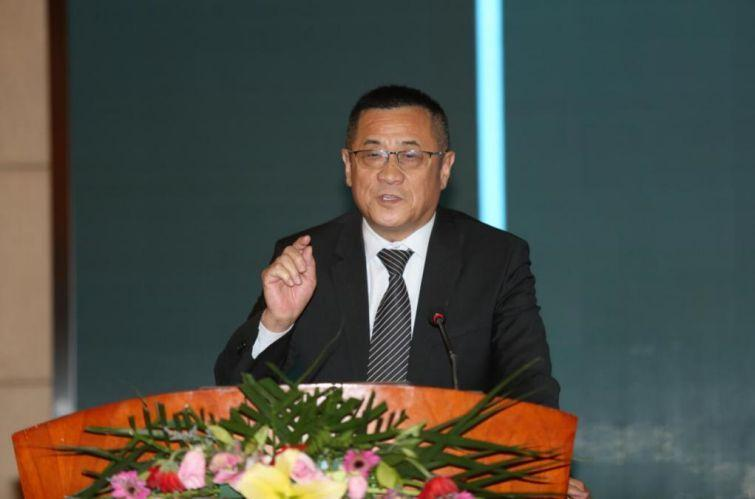
The picture shows the speech of Mr. Wang Jiaben
Mr. Wang Jiaben's speech was titled "In-depth Analysis of Typical Administrative Cases of Tax Evasion", in which he analyzed the constituent elements of Article 63 of the Tax Administration Law through a case, and focused on whether the determination of tax evasion is based on the subjective intent as a constituent element. He pointed out that it is not possible to simply think that the determination of tax evasion in the criminal law has to consider subjective intention, and then determine that the determination of tax evasion in the tax administration law also needs to consider subjective intention. He analyzed the issue from the principle of administrative efficiency and proposed that: if the subjective factor of tax evasion is taken into consideration, the principle of presumption of fault should be allowed, and the tax authorities can presume that the actor has the subjective intention of tax evasion as long as it can be proved that the actor has the subjective circumstance of indulgence, endorsement or negligence.
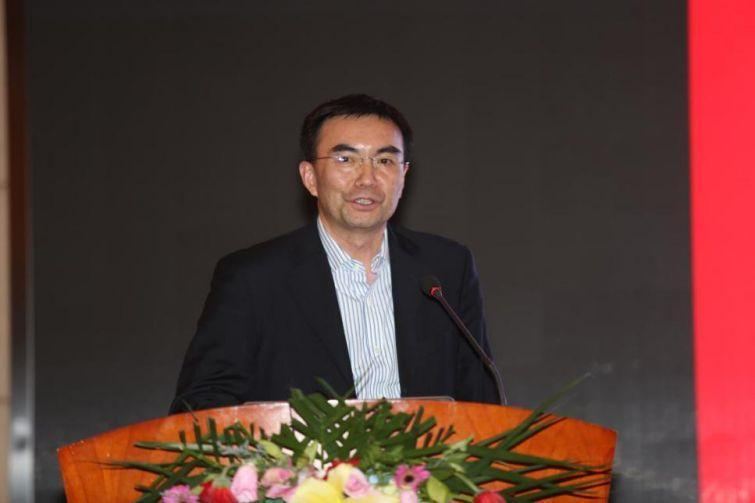
The picture shows Prof. Teng Xiangzhi's speech
Prof. Teng Xiangzhi's speech was titled "Analysis of Equity Transfer Tax Cases and Legal Rules of Tax Administrative Interpretation". Through the analysis of an equity transfer case, combined with the departmental regulations and normative documents of the current tax law, he put forward the drawbacks of the administrative interpretation of the current tax law, such as the change of the entity tax elements, the identification of conflicting tax objects, and the creation of additional procedural obligations. procedural obligations, etc. He proposed that the administrative interpretation of tax law needs to be regulated in three aspects, firstly, the regulation of legislation, the basic elements of tax law should be presented in the law, and the administrative interpretation of tax law should not infringe the basic elements of tax. Secondly, internal control mechanism should be established for the normative documents issued, and thirdly, open tax justice, and emphasized that the complete tax governance order should be the simultaneous functioning of the three powers of tax legislation, tax law enforcement, and tax justice, and one is indispensable.
After the keynote speech, Dynasty Hui, partner of Beijing Jincheng & Tongda Law Firm, and Tong Pengfang, director of Beijing Derun Law Firm, made comments respectively.
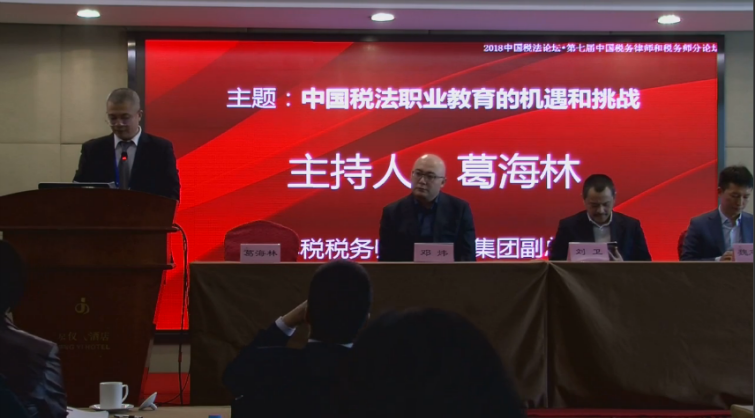
Pictured is the scene of the sub-forum on "Opportunities and Challenges of Vocational Tax Education in China" at the 2018 China Tax Law Forum
A sub-forum on "Opportunities and Challenges of Tax Law Vocational Education in China" was held at the same time, chaired by Ge Hailin, Vice President of Huatax Taxation Firm Group and Partner Lecturer of Huatax Academy. Mr. Deng Wei, CEO of Dong'ao Education Group, Mr. Liu Wei, CEO and editor-in-chief of dot.com, and Mr. Wei Zhibiao, CEO of Huatax Academy delivered keynote speeches.
Mr. Deng Wei spoke on the topic of "Current Situation and Prospect of Finance and Taxation Qualification Exam Training Market", analyzed the trend with tax-related data and put forward suggestions to deal with the situation. Mr. Liu Wei gave a keynote speech on "Latest Development and Opportunities of Online Education for Lawyers", pointing out the trend of diversification of lawyer training subjects, course categories, refinement of content, diversification of methods and high-grade services. Mr. Wei Zhibiao introduced the prospects, paths and specific modes of training for new tax law professionals under the background of the rule of law in taxation with the topic of "Creating an Open, Sharing and Mutual Help Tax Law Learning Organization". After the keynote speeches, Mr. Huang Hongbin, Director of Examination Department of China Association of Registered Taxation Technicians, Prof. Liu Ying, Deputy Director and Secretary General of Taxation Research Institute of Capital University of Economics and Business, and Prof. Dong Renzhou, Partner Lecturer of Huatax Institute and Professor of Law, made comments.
The fourth part of the session was titled "Innovation of Tax-related Services in the Reform of Tax Reduction and Fee Reduction", which was hosted by Duan Aiqun, deputy director of the Finance and Taxation Law Committee of the All-China Lawyers' Association and partner of Dacheng Law Offices. Mr. Wei Weibang, Tax Leader of Ernst & Young Greater China North China Region, Mr. Zhao Tingting, Partner of Junhe Law Firm, Mr. Yang Shuo, General Manager of Crowe Horwath (Beijing) Taxation Firm, and Mr. Wang Dongsheng, General Manager of Beijing Zhifangyuan Taxation Firm, delivered the keynote speeches.
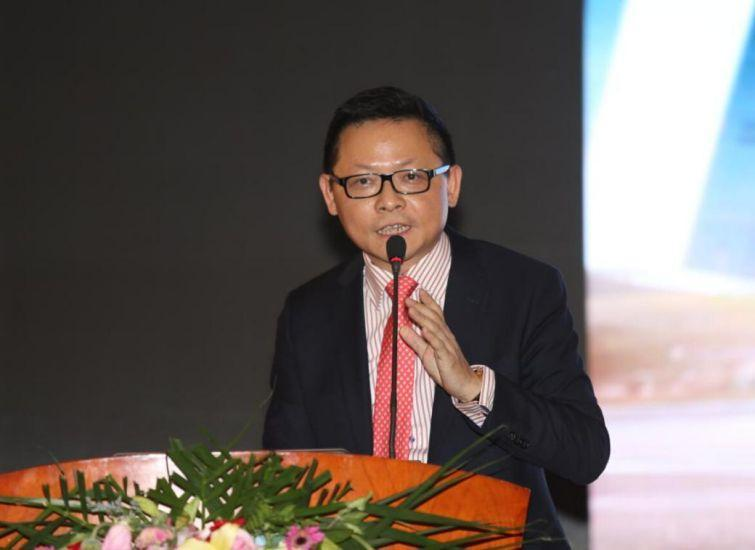
Picture shows Mr. Wei Weibang's speech
Mr. Wei Weibang's speech was titled "The Impact of China's Individual Tax Reform on High Net Worth Individuals and Their Responses", in which he firstly introduced how the tax-related information of non-resident financial accounts in the CRS Common Reporting Standard (CRS CRS CRS) can be exchanged after the collection and declaration of tax-related information, and suggested that in September 2018, Mainland China has already carried out the first exchange of information with overseas countries and regions. exchange. He highlighted two of the most important changes in the new tax law that will have the most significant impact on HNWIs, namely the establishment of anti-avoidance regulations and the expansion of the scope of tax residency recognition under the new tax law. On this basis, he highlighted how to deal with it through the establishment of overseas trust structures.
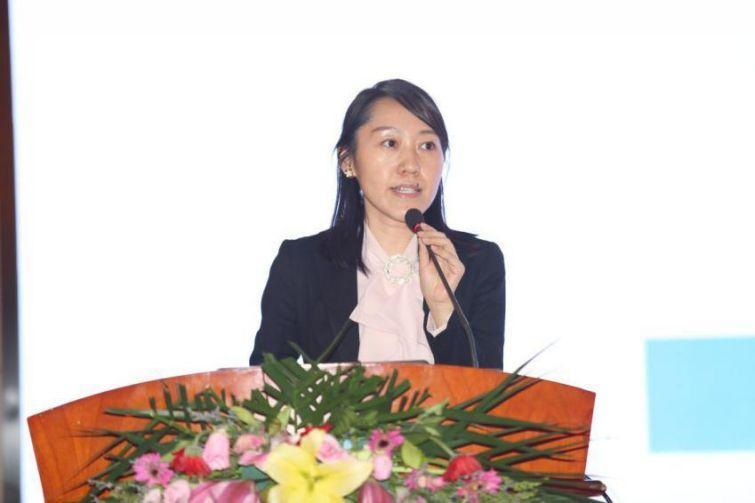
Ms. Zhao Tingting's speech
Ms. Zhao Tingting's speech was titled "Tax Policy and Planning Practice of M&A and Reorganization in Economic Transformation and Upgrading". Through a case study of M&A and reorganization, she suggested that tax lawyers can play an important role in M&A and reorganization, and proposed that tax consideration in M&A and reorganization, first of all, is the special tax treatment of EIT, which should not only meet the requirements of preferential policies, but also meet certain business purposes. It also suggested that tax considerations in M&A and reorganization, first of all, the special tax of enterprise income tax, should not only comply with the requirements of enjoying preferential policies, but also meet certain business purposes. In addition to EIT considerations, VAT should also be taken into account in the design of restructuring schemes. She also pointed out that tax considerations in reorganization should also take into account whether the immediate reduction of tax burden will lead to the risk of audit at a later stage. She believes that tax lawyers should intervene in M&A reorganization in advance, design the terms and conditions of the plan and follow them throughout, and pay attention to tax disputes not only with the tax authorities, but also with the commercial disputes between the buyer and the seller.
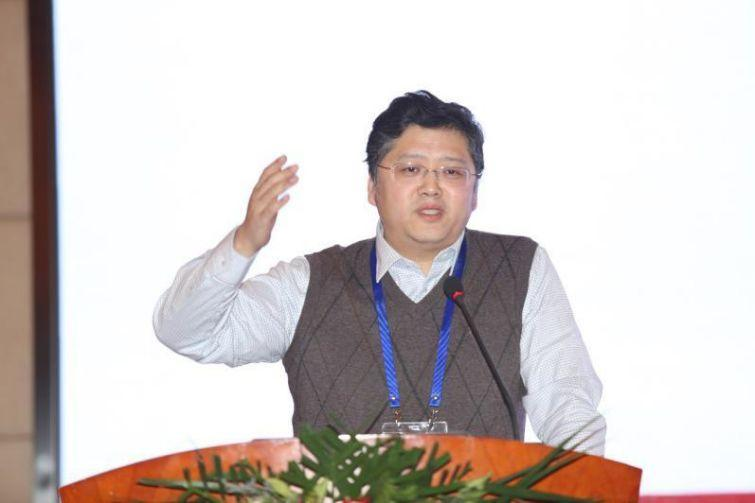
The picture shows the speech of General Manager Yang Shuo
The theme of Yang Shuo's speech is "Upgrading Tax-related Services in Real Estate Industry", and he believes that the research and development of the Golden Tax III System has improved the ability of tax authorities to govern taxes with big data, especially in the real estate industry, which is characterized by large capitals, large volumes, long cycles and diversified transaction modes, and the information unintentionally released by the enterprises may be collected and recorded by the tax authorities. All information unintentionally released by enterprises may be collected and recorded by tax authorities. In this context, intermediaries should not only seek solutions to tax-related problems of enterprises from the substantive and procedural tax laws, but also help enterprises control and adjust the reasonable information output through internal management, and realize the reasonableness of enterprise taxation through the way of enterprise strategic management.
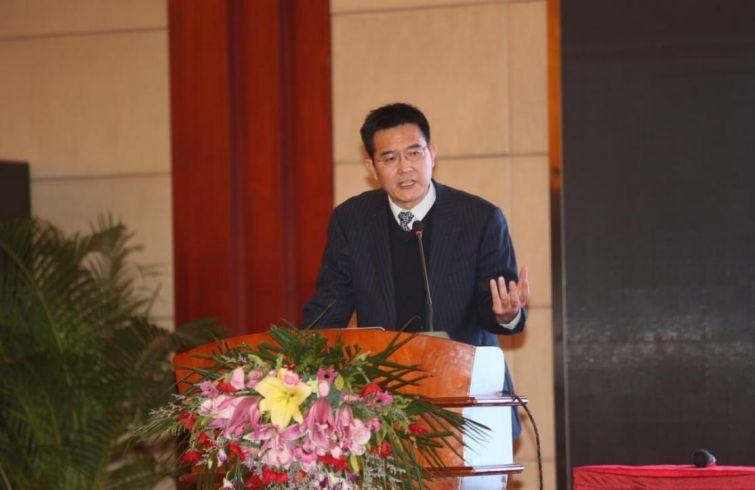
The picture shows the speech of General Manager Wang Dongsheng
Wang Dongsheng's speech was titled "Enterprise Tax Planning Strategy and Practice in the Reform of Tax Reduction and Fee Reduction". He pointed out that tax planning must meet three requirements, the first one is the legality requirement, which is to legally reduce the tax burden and tax cost of the enterprise, and the second one is the reasonableness, which is that tax planning should be in line with the basic principles and regulations of the tax law, and help the enterprise to The second is rationality, tax planning should be in line with the basic principles and basic provisions of the tax law, and help enterprises to make good use of the state's tax incentives. The third is moderation, tax planning research should be moderate.
After the keynote speeches, Wu Xiaohong, Director of Anhui Law Association's Finance and Taxation Law Committee, and Shi Bowen, Partner of Taiwan Bozhi CPA Firm, made comments.
The fifth part, titled "'Belt and Road' Strategy, Digital Economy and International Tax Service Innovation", was moderated by Chen Shuangzhuan, Director of Editorial Department of Journal of Taxation Research. Former Deputy Director General of International Taxation Department of State Administration of Taxation Wang Kengsheng, Professor Cui Xiaojing of Wuhan University Law School, Director of Red Star Taxation Studio Liang Hongxing, and Deloitte China Tax Partner Zhang Bo, delivered keynote speeches respectively.
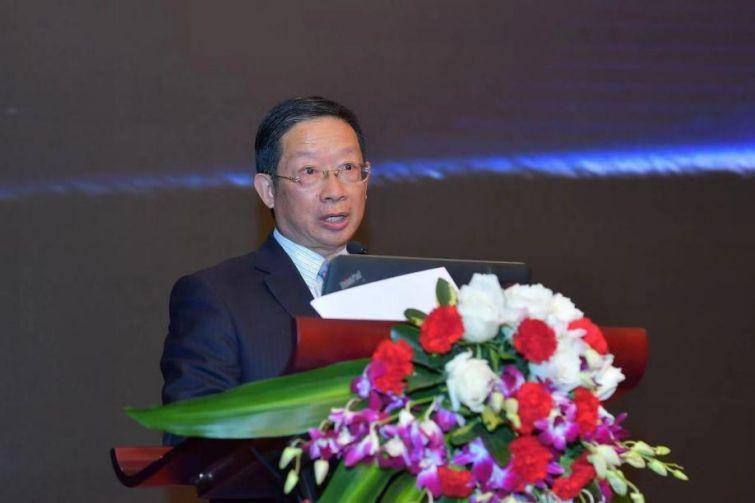
Picture shows Mr. Wang's speech
The theme of Wang's speech was "Taxation Service for 'Belt and Road' Construction", and he shared his views in six aspects, firstly, the negotiation and implementation of tax agreements, and he summarized the achievements made in the year of 2017 from the aspects of double taxation avoidance agreements and signing of multilateral tax treaties. First, negotiation and implementation of tax agreements, he summarized the results achieved in 2017 in terms of double tax agreements and multilateral tax treaties. Second, in terms of "going out" tax policy, he released the Foreign Tax Guide and "Going Out" Tax Guidelines, and briefly explained the Guidelines. Thirdly, in terms of tax policy consultation platforms, a national 12366 "Belt and Road" desk and a 12366 Shanghai (International) Tax Service Center were established.12366 Shanghai (International) Tax Service Center. Fourthly, investment has been made in "going out" tax publicity work. Fifthly, in terms of international tax cooperation, he pointed out that in 2017, China increased tax cooperation with countries along the route, helped developing countries to improve their tax collection and management capacity, and sent out tax officials to work in embassies and consulates. Finally, he advocated that tax departments, intermediary organizations and enterprises should jointly participate in "going out" tax dispute resolution.
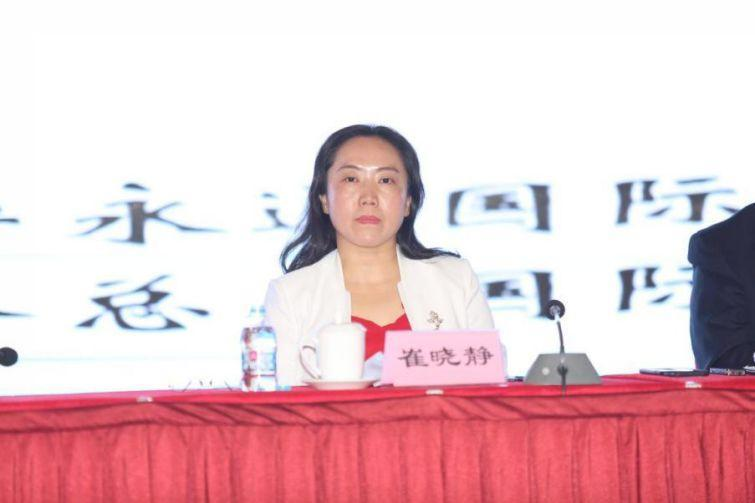
Prof. Cui Xiaojing's speech
Prof. Cui Xiaojing's speech was titled "New Development of Agency-type Permanent Establishment under E-commerce Mode". She summarized the revelation to Chinese "going out" enterprises through two actual cases, and believed that the scope and extent of China's enterprises' "going out" are expanding. She believes that the scope and degree of China's enterprises "going out" are constantly expanding, and when enterprises choose whether to set up warehouses abroad or transport through domestic warehouses, they should not ignore the impact of tax policies of the income source countries. In tax planning, enterprises should not only judge on the basis of whether there is a tax agreement between the two countries, but also take into full consideration of the judicial practice of the country of source of income, so as to comprehensively arrange the business model that is most favorable to their own interests.
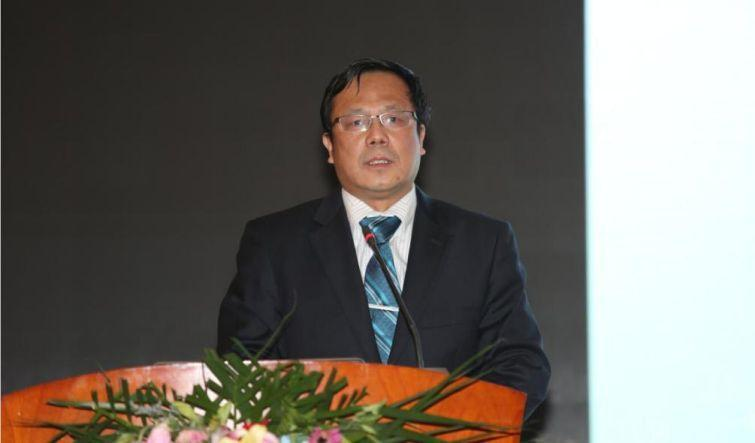
Picture shows Liang Hongxing's speech
Liang Hongxing's speech was titled "Hot Spot Management of Tax Risks for Enterprises Going Global", in which he proposed that it is extremely difficult for Chinese enterprises to go global, and listed the problems faced by enterprises going global, such as financing difficulties, strengthening of tax reform and collection and management in developing countries, and shortage of international tax talents. "In his speech, he pointed out that it is very difficult for Chinese enterprises to go out, and listed the problems faced by enterprises going out, such as financing difficulties, tax reform and strengthening of tax administration in developing countries, and shortage of international tax talents, etc. He also explained the problems of enterprises going out, such as insufficient preliminary research on tax policies, insufficient evaluation of contract offers, lack of protection of tax preferential policies, lack of tax checking, and lack of protection for tax incentives. It also explained eight hotspot problems of "going out" enterprises, such as insufficient preliminary research on tax policies, insufficient evaluation of contract offers, lack of protection of preferential tax policies and ineffective response to tax inspections, etc., and called on tax-related service intermediary organizations to play their part in contributing to the "going out" of enterprises.
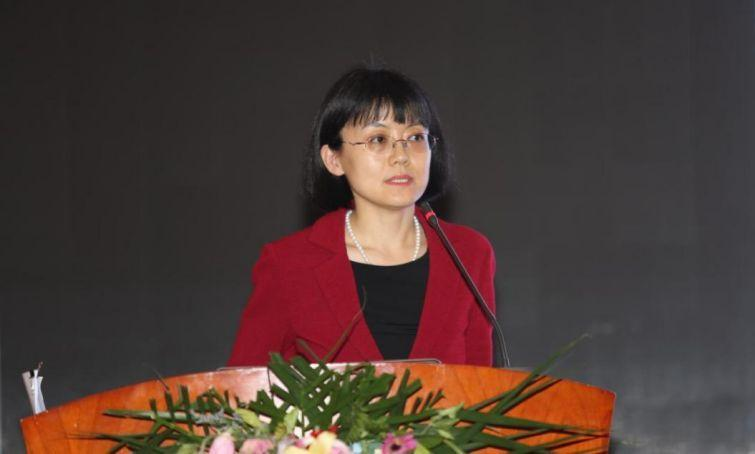
The picture shows the speech of Ms. Zhang Bo
Ms. Zhang Bo's speech was titled "Difficult Practical Issues in the Application of Tax Agreements". Combining her working experience in international tax services, she shared with the participants three difficult issues in the application of tax agreements: the main purpose test, the concept and application of the beneficial owner, and how to enjoy the benefits of tax agreements for partnership enterprises. She pointed out that the "main purpose test" is the threshold for enjoying preferences under tax treaties, and emphasized this principle through two positive and negative cases.
After the keynote speeches, Mr. Tan Chongjun, Vice President of Ali Research Institute and former Deputy Director General of Taxation Department of the Ministry of Finance, Mr. Feng Lizeng, International Tax Consultant of PricewaterhouseCoopers and former Director General of Agreement Department of International Department of the State Administration of Taxation (SAT), and Mr. Sun Hongmei, Director General of International Taxation Department of Institute of Taxation Science of the State Administration of Taxation (SAT), made comments on the speeches.
After the five speech topics, Liang Wenyong, Deputy Director of the Legislative Affairs Committee of the Central Committee of the Democratic Alliance for the Betterment and Progress of Hong Kong (DAB) and Executive Director of the China Institute of Fiscal and Taxation Rule of Law Strategies of Changzhou University, made a general comment.
The closing ceremony of this forum was held at 18:00. Dr. Liu Tianyong, Deputy Director and Secretary General of the Professional Committee on Fiscal and Tax Law of the National Lawyers Association and Director of Hwuason Law Firm, was the moderator. Ms. Quan Fanglou, Vice President of China Association of Registered Tax Practitioners, and Mr. Shi Zhengwen, Director of the Research Center of Finance and Taxation Law of China University of Political Science and Law, delivered speeches, and an awarding ceremony of the China Tax Law Forum Essay Competition was held.
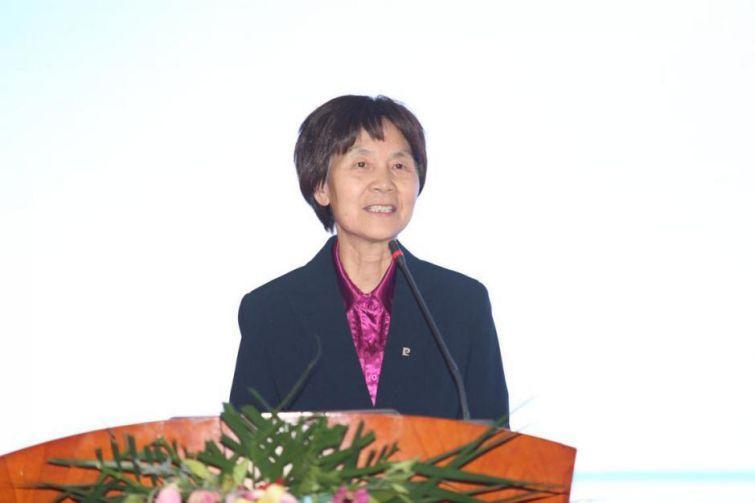
The picture shows the speech of Vice President Quan Fanglou
In her speech, Vice President Quan Fanglou expressed her gratitude to all the participants on behalf of the organizers and announced the winners of the paper competition. She pointed out that the paper selection had received active attention and support from many tax lawyers, tax accountants, tax cadres, certified public accountants, experts and scholars, corporate finance, legal directors, financial managers and postgraduate students of tax law, with a total of more than 230 papers received, which were selected to produce 2 first prizes, 4 second prizes, 6 third prizes, and 4 excellence prizes.
Prof. Shi Zhengwen pointed out in his speech that this forum is both cutting-edge and high-end, and pragmatic and grounded, which is a high-profile and unforgettable event for the theoretical and practical circles of tax law. He pointed out that tax lawyers and tax accountants should follow the pace of the times, not forgetting the original intention of promoting the rule of law in taxation and protecting the rights and interests of taxpayers, and writing a wonderful life of tax lawyers and tax accountants. After the award ceremony, Director Liu Tianyong, on behalf of the main organizer of the forum, announced the successful closing of the Tax Law Forum.

The picture shows the awarding ceremony of Tax Law Thesis Competition
Since 2010, in order to meet the needs of economic development and national tax law reform, and to strengthen the construction of tax lawyers, the National Lawyers Association of China has set up the Specialized Committee on Taxation Law and cooperated with the China Association of Registered Taxation Technicians (CARTT) in organizing the "China Tax Law Forum and China Tax Lawyers and Taxation Technicians Forum" for the past seven years. With the theme of "Tax Reform and Innovative Development of Tax-Related Services in the New Era", the forum has held extensive and in-depth discussions on major theoretical and practical issues such as "Tax Reform and Tax Legislation in the New Era" with the participation of tax officials, tax law scholars, tax lawyers as well as tax lawyers and corporate finance personnel. The forum held extensive and in-depth discussions, highlighting the organic combination of frontier, theory, practice, professionalism and openness, and the degree of social attention and participation reached an unprecedented level. The successful convening of this forum will play a more positive role in the in-depth implementation of the spirit of the 19th CPC National Congress, the full implementation of the principle of tax law, and the continuation of leading the development of the tax-related service industry including tax lawyers, tax accountants and other tax-related service industries, as well as business innovation and strategic cooperation; in the future, the forum will continue to explore the major cutting-edge issues in the construction of the rule of law in China's taxation in the new era, and to help the national reform of the taxation system and the In the future, the forum will continue to explore the major frontier issues in the construction of the rule of law in China in the new era, help the reform of the national fiscal and taxation system and the construction of the rule of law in the country, and better serve the country's strategy of comprehensively deepening the reform, comprehensively ruling the country according to the law and comprehensively opening up!





